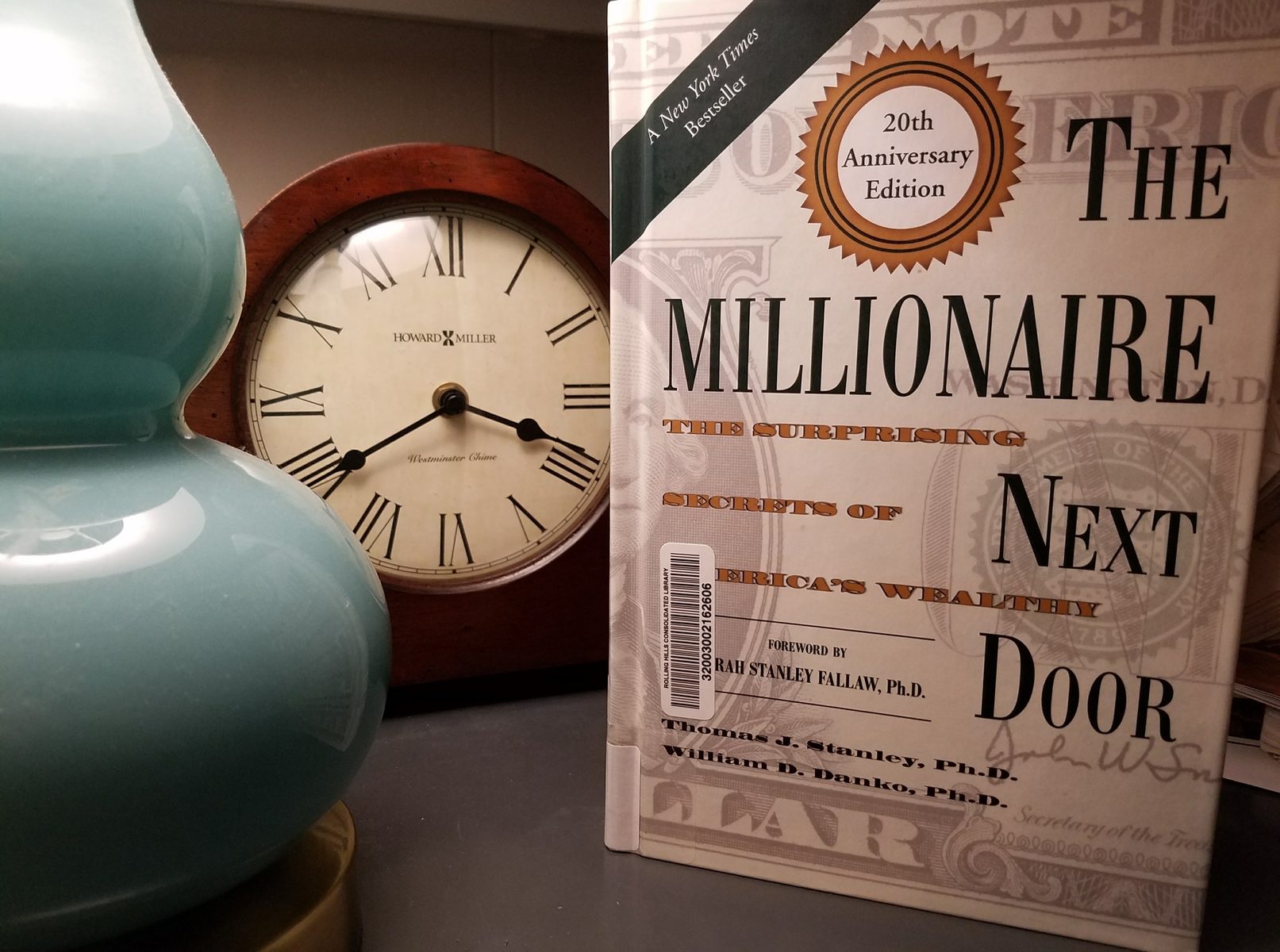The Millionaire Next Door

I am quick to play the victim card in my head. When something doesn’t go my way or I don’t get something I want, I quickly find the outside forces I can blame on why I didn’t get my way.
Most people suffer from focusing on the external forces rocking our world as opposed to the internal feelings, motivations, and preferences that we actually have control over.
External conditioning (how forces outside ourselves shape our decisions) is the theme of The Millionaire Next Door by Thomas Stanley and William Danko. The premise is that many people who have wealth, or what the authors call PAWs (prodigious accumulators of wealth) don’t live like most think they would. Basically, PAWs avoid high dollar luxuries and live frugally, and it’s that very nature that made them wealthy in the first place.
Contrast that to the UAWs (under accumulators of wealth). These folks may have incomes north of 6 figures, but ultimately, they accumulate very little wealth because of their spending habits. They do what comes natural…they spend…a lot.
Granted, that spending allows them to experience some very nice vacations, some very name brand clothing, some sweet vehicles, and some very large living spaces. However, it does not secure their financial future. If these high earners were to have a disruption in their income, many could not go longer than a year before they would be completely broke and some much less time than that.
The contrast between the PAWs and the UAWs takes up the entire first half of the book. Then the authors took a shift that surprised me. In much of the latter half of the book, it turns into a parenting book!
The authors don’t focus on the contrast of PAWs and UAWs children. Instead, they focus more on what happens to children that causes them to develop into a PAW or a UAW as adults. Being a PAW does not guarantee your children will pick up on the principles that helped their parents accumulate wealth.
In fact, research shows that children who receive substantial financial support from their parents often never develop the ability to sustain themselves. They survive on what the authors call Economic Outpatient Care (dependency on financial gifts and support from the folks).
It is reasonable and seemingly virtuous for a parent to want to help their kid, especially for something such as advancing education via college. But the research showed that large financial gifts to kids can be incredibly dangerous to a child’s ability to become financially independent if such gifts are given before the child has already proven independence.
Perhaps some parents prefer the children to be indefinitely dependent, because with dependence comes a level of control that many parents desire to maintain over their children, or children-in-law, and later grandchildren.
Personally, I want to raise independent kids. And my guess is you do too. Not because I don’t like to keep my kids close or want them to come around often as adults. I certainly do! But I can’t guarantee how long I or their mother will be around. If something does separate us from our children, I expect my kids to mourn. But not because they are fearful of how they’ll find provision.
My take is this: our children have to experience pain in their lives so seeds of love, joy, patience, kindness, goodness, faithfulness and self-control can be planted deep within their souls. Powerful experiences are the only thing that can get those seeds deep enough into our children’s hearts to make them take root without our constant supervision or intervention. Those powerful experiences often come with pain.
This book shows the difference financial discomfort can have on our kids. Allow your child to know what work is required to be financial successful, or what it takes to earn and pay for a college degree. They deserve that from you!
But it’s not enough to limit the painful experiences to money. Our children need to learn the same when facing relational turmoil or when searching for answers to the universe’s biggest questions.
Before accusing me of masochism, know that I HATE pain personally. I fear pain much more than death. And I HATE even worse the thought of my (or others’) children enduring pain. But I would much rather have my children go through difficult experiences when I am there to comfort and catch them.
My heart breaks for the kids who are sheltered from pain/sacrifice all their lives only to get punched in the gut by the world once they leave home and feel completely unequipped to pick themselves back up.
I didn’t expect to get fired up about parenting when I read this book! But our children’s lives are the legacy that can be far more rewarding and enduring that our net worth. So it’s worth learning what other financially successful people have done to liberate (or handicap) their children.
Regarding this book and the recommendation to read it…I haven’t read enough other books to classify The Millionaire Next Door as a must read. But I think if you find you and your family taking your cues from the world instead of making decisions based on your priorities, including spending and savings decisions, than this book will be of great value.
Finally, if you need some financial empowerment, this book can deliver. The case is strongly made that your ability to accumulate wealth rests solely on your shoulders and your ability to make wise spending (and earning) decisions. If you can do that, financial independence is within reach for you. And for all people…that’s news worth sharing.